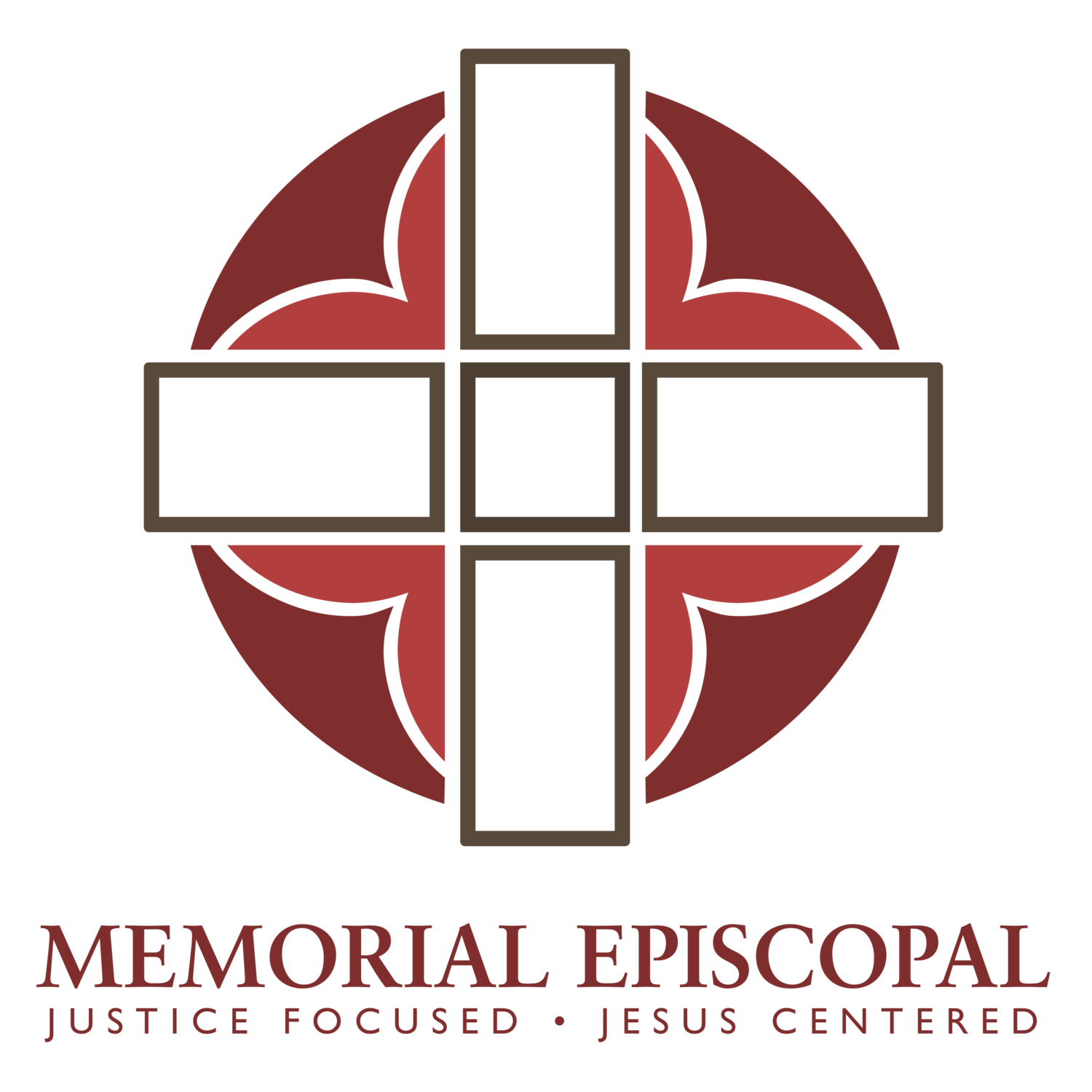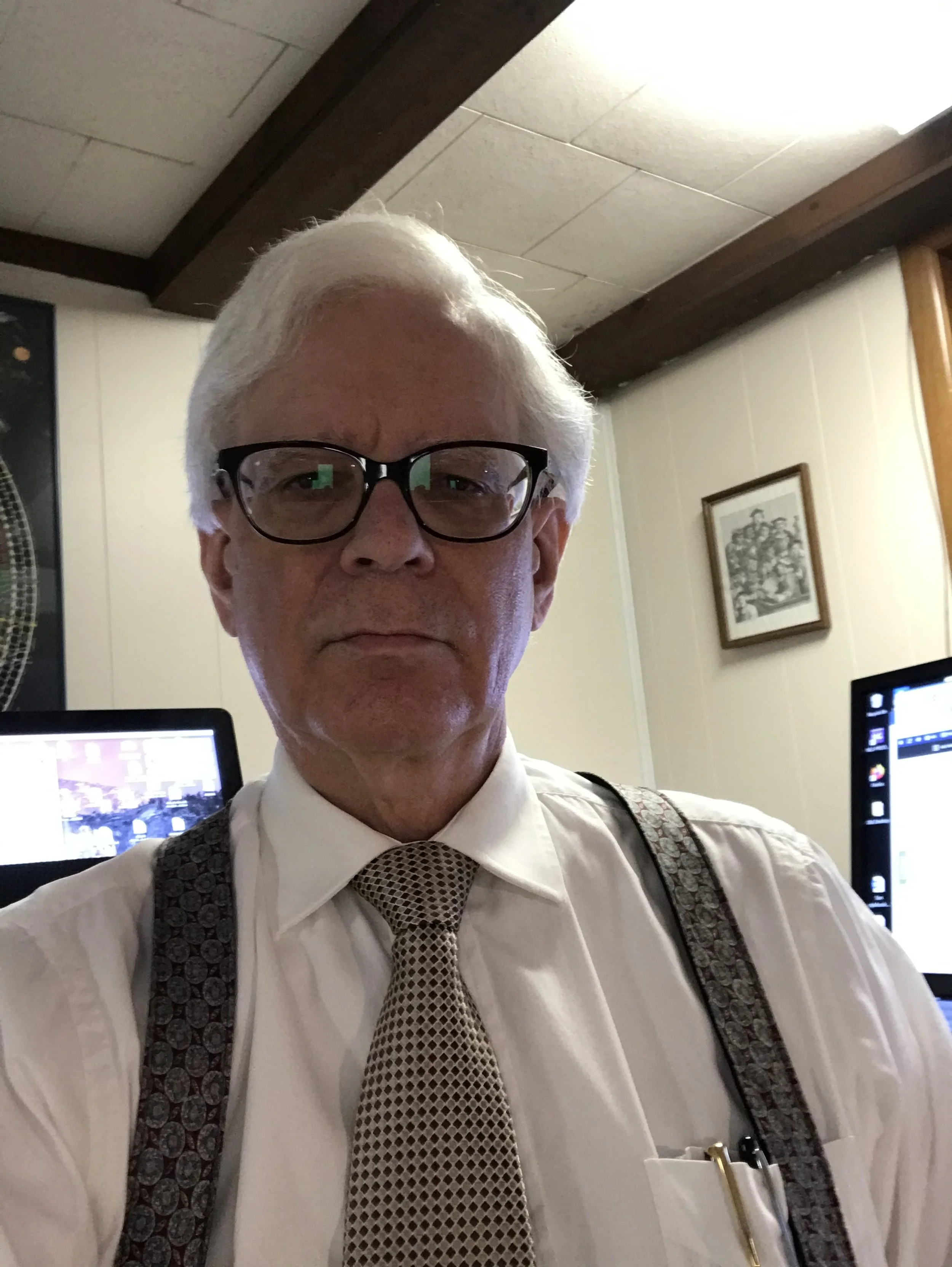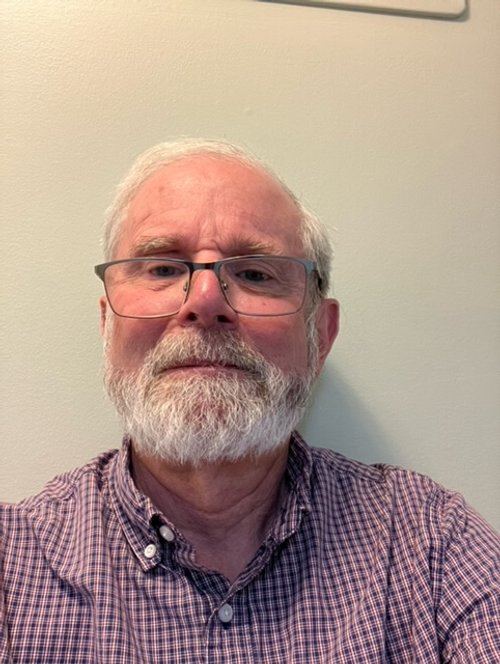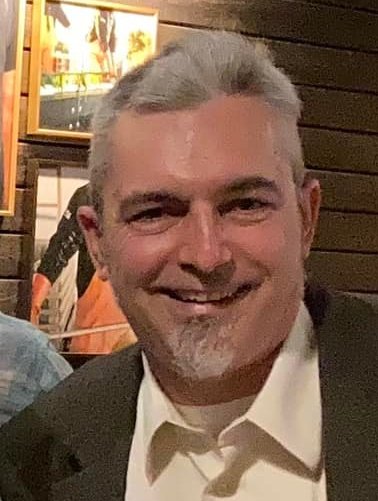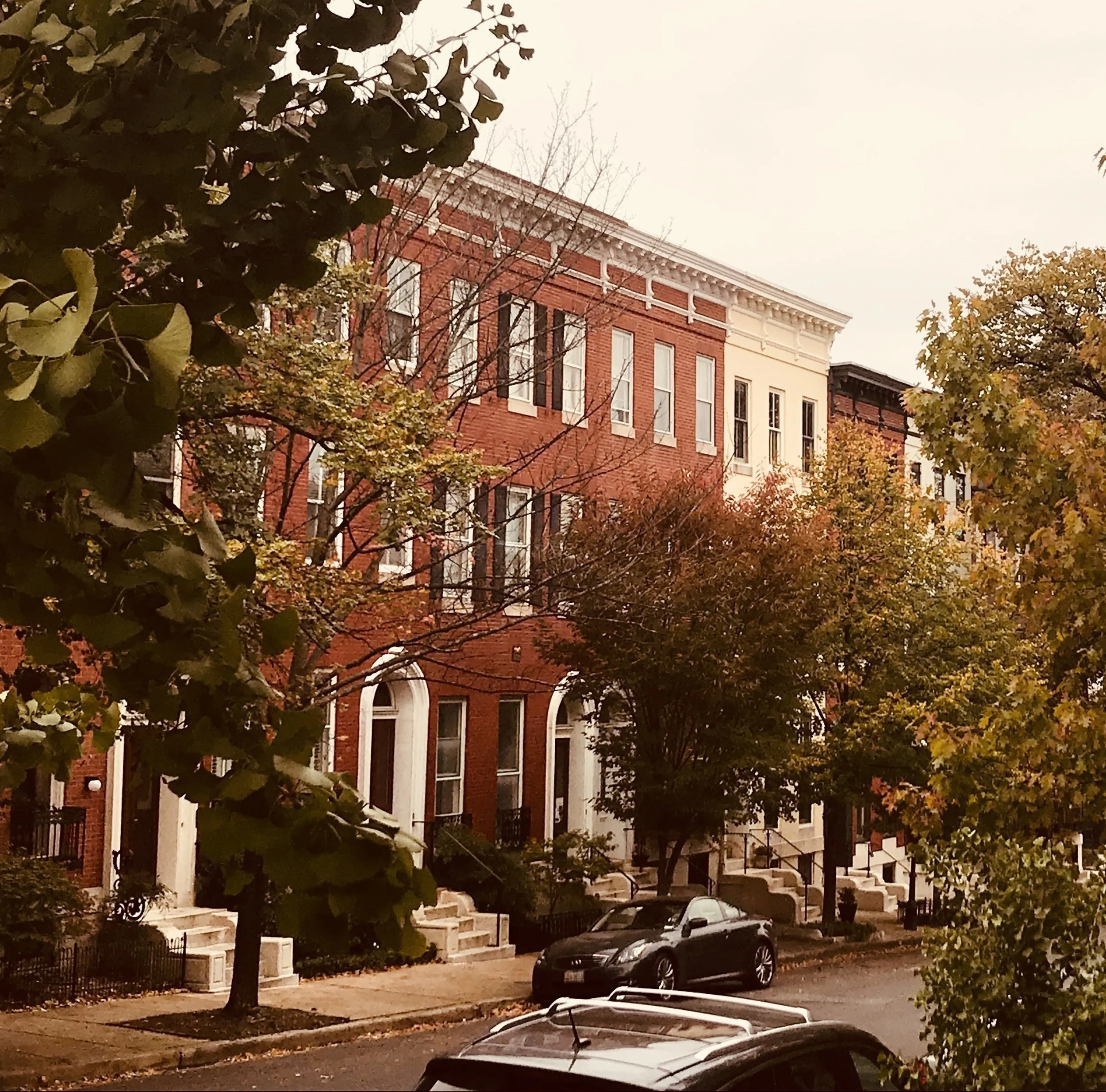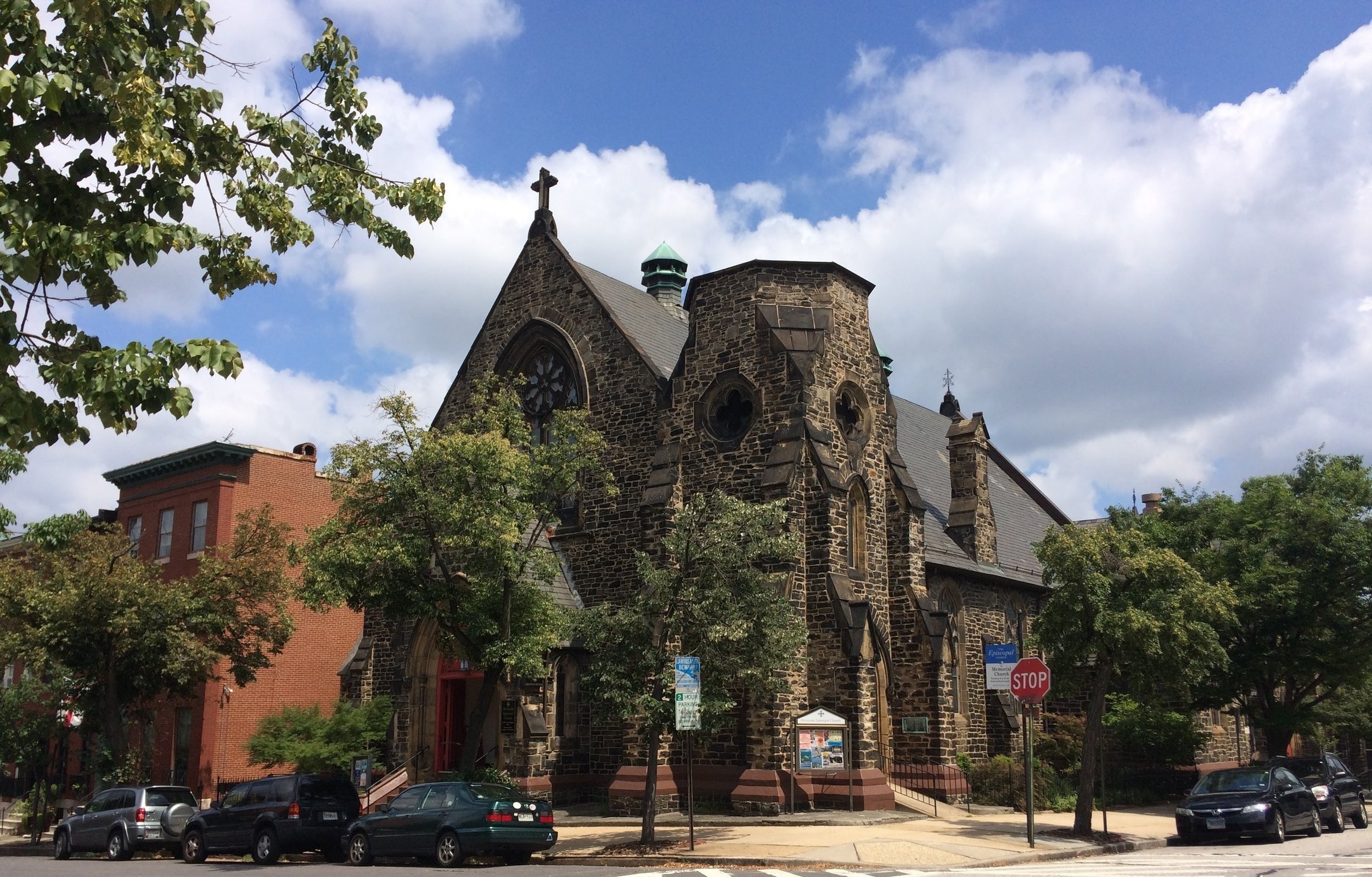
The View from Bolton Street
The View from Bolton Street
$5.00, $1.8 billion, it’s just money.
In 2018, when Michael Bloomberg donated $1.8 billion to Johns Hopkins University, I
compiled for The Sun a list of his gifts to Hopkins.
The first was given a year after he graduated. It was for five dollars.
Now if anyone among you were to pledge $1.8 billion to Memorial Episcopal, we would be
happy to receive it. We would run to the bank with the check. But what you may not understand is that if you were to pledge five dollars, we would still be happy.
We would be happy because you’re making a pledge of financial support, in whatever amount,
would show that you see yourself as part of this community, that you share our values and
concerns, and that you want to be a part of our work going forward.
So when we invite you to consider making or renewing a pledge in support of our common work
here, we’re not trying to guilt you into contributing money. We want you to see yourself as one
of us, a partner and participant in all we do for ourselves as a congregation, and for the larger
community around us who are hungry for what we can offer them.
The View from Bolton Street
Tom Casey has worshiped at Memorial since the late 70s, when he joined the choir as a
member of the tenor section and met his wife Beth, at the time, a member of the soprano
section. They married at Memorial in 1981 and have been active and involved members of
the congregation ever since. Tom, an architect, is a Senior Associate at Hord Coplan Macht
and is Chair of Memorial’s Building and Grounds Committee. He writes this week with an
update on the church’s construction project. He can be reached at tmcdcasey@aol.com
Tom Casey has worshiped at Memorial since the late 70s, when he joined the choir as a member of the tenor section and met his wife, Beth at the time, a member of the soprano section. They married at Memorial in 1981 and have been active and involved members of the congregation ever since. Tom, an architect, is a Senior Associate at Hord Coplan Macht and is Chair of Memorial’s Building and Grounds Committee. He writes this week with an update on the church’s construction project. He can be reached at tmcdcasey@aol.com
An Update from Your Buildings and Grounds Committee
Nearly three years ago, a former longtime Memorial member approached our Rector with an idea: if the former member launched us with a substantial donation, could we figure out a way to air condition our sanctuary so that Memorial’s good works could take place 52 weeks per year?
This unexpected and wonderful gift launched a capital campaign, Memorial Makes Room, which has raised funds to provide air conditioning for the sanctuary, replacement of the old cork floor in the sanctuary with a new one, enhanced sanctuary lighting, and replacement of the glass doors. You may have noticed that the lighting piece of Memorial Makes Room is already finished.
When we began the Memorial Makes Room campaign in early 2021, we were on track for a construction start date that fall. However, the project was paused in November 2021. Because of the difficulty in fitting 21 st century equipment in our one hundred sixty-year-old building, we have had to revise the proposed mechanical system to be used for the air conditioning in the sanctuary. Current construction market conditions with supply chain issues and labor shortages have also played a role. Patience in times of difficulty is something we have all had to exercise.
Our proposed new system has been submitted for a permit with Baltimore City. Recently, the City requested that the Engineer provide a form showing compliance with the International Green Construction Code. We are waiting for the Engineer to provide the form, once that is submitted we expect a quick turnaround on the permit which will allow us to proceed.
Once work begins, the mechanical and flooring parts of the project should take around eight weeks to finish with the doors following. If all goes well, the next update in the Wednesday e-news will be letting you know that the project is complete.
The View from Bolton Street
Steve Howard is a vestry member and has been a member of Memorial since 1995. He is a partner in True Chesapeake Oyster Co. He and Monty live around the corner from the church, next door to Linden Park Apartments.
Steve Howard is a vestry member and has been a member of Memorial since 1995. He is a partner in True Chesapeake Oyster Co. He and Monty live around the corner from the church, next door to Linden Park Apartments.
This past Sunday we read from Jeremiah 8:
“My joy is gone, grief is upon me, my heart is sick. . . . The harvest is past, the summer is ended, and we are not saved."
This coming Sunday, we read from Jeremiah 32: “For thus says the Lord of hosts, the God of Israel: Houses and fields and vineyards shall again be bought in this land.”
We have gone from despair to hope, in just one week. The people of Jerusalem have had their thinking turned on its head.
Some people despair about Baltimore City. The murders. The violence. The overdoses. And for five days we had to boil our tap water. But we at Memorial see hope. We see courageous people who persevere and overcome obstacles. And we gather every Sunday to remind ourselves of hope. We gather to support and encourage the medical professionals who have been fighting a novel coronavirus for the past 32 months. We gather to support those who are educating the next generation. We gather to support those in our congregation who do justice, day in and day out. A smile. A warm welcome. The cheerful willingness to handle a chore. All of these things offer hope to the beleaguered. And they allow us to participate, indirectly, in the marvelous works of others.
When I had been attending Memorial for just a few months, the rector asked me to join the stewardship committee. I was astonished and said, “Don’t you want someone who has been here longer? Who knows more people?” And he replied by saying that I was the right person, that the committee needed someone new, and besides, working with the group would be a great way to meet people. Who was I to argue? I had always thought of leadership positions as a reward for past service, and here was a church turning my thinking on its head.
I realized that Memorial was a place where new people could dive in, test their skills, demonstrate their skills, and build their capacity. There was no need to sit on the sidelines; Memorial was a place of doers. And a year later, I was also co-leading the Sunday morning Rite 13 youth group.
When we feel beleaguered, is it perhaps because we have failed to allow others to participate in the work? What a great joy it is to say, “WE have done . . .” instead of, “I have done . . . “.
During the sabbatical, we all need to step up and do the rector’s job. Those of us who have been around a while need to astonish the newcomers by asking them to participate in a new way. And newcomers, if they can accept the crazy invitation, or better yet, volunteer before being asked, they will have their lives changed for the better. I guarantee it.
Questions: When has someone turned your thinking on its head? Where in your current life do you need your thinking turned on its head? Who can help with that?
The View from Bolton Street
Stacy Wells currently serves as Memorial's Junior Warden (for the 2nd time around) and manages training development at the Federal Aviation Administration. She lives in Bolton Hill with her kids, Nate (15) and Mary Anne (13.5). You might see her being dragged around the neighborhood by her two pups - Beatrice (Bea) and Bennett (Benny). Her favorite role at Memorial is singing in the alto/best section of the Choir.
Stacy Wells currently serves as Memorial's Junior Warden (for the 2nd time around) and manages training development at the Federal Aviation Administration. She lives in Bolton Hill with her kids, Nate (15) and Mary Anne (13.5). You might see her being dragged around the neighborhood by her two pups - Beatrice (Bea) and Bennett (Benny). Her favorite role at Memorial is singing in the alto/best section of the Choir.
"Grant us, Lord, not to be anxious about earthly things, but to love things heavenly"
This statement is part of the Collect this coming Sunday’s service. Wow - what a neon sign that I need at this moment!
Over my 20 years at Memorial, I have rotated between the roles of the lost sheep and the shepherd. (Thanks, Pastor Ken for your preaching this past week!) But I constantly feel called back to Memorial and to serve this community. Why? For me, Memorial is one of those heavenly “things”. It is a space where I find the thin spaces and holy moments.
Homecoming Sunday started more like a moving sidewalk for me, than a holy moment. Grab potato salad and coleslaw for the potluck (no, it wasn’t homemade and that was weighing on me, but…); pick up the teenagers and drive the three of us the 3 blocks to church because it was pouring; choir warm-up; make notes for the welcome; check-in with a variety of folks on service logistics; give welcome; get to the back of church for Introit; try not to run into the alto in front of you while reading the hymn music (Justine, maybe we can sing the 1st two verses in unison? #askingforafriend); read the first reading (thank goodness there were no hard to pronounce places or names). All that to say, I was more focused on the logistics and to-do list than being present in the moment.
... and then the choir’s Anthem - Keep Your Lamps Trimmed & Burning. It was at this point that the moving sidewalk came to a screeching halt and the world stood still. The music flowed and filled the space. It was a warm hug; a deep breath.
For me, that was a heavenly moment. Sunday, it was the music that touched me. Other times, it is being able to connect with someone in an unexpected way. No matter what the situation, what I have learned over the years is that I need to recognize when I’m getting caught up in those earthly logistics or I’m going to miss those heavenly things. So, why not just sit back and keep watch for those heavenly moments? As with most things, it takes a village to run Memorial. And it takes a community to create those heavenly moments. I like to think Bill (our Senior Warden) and I, the Vestry, the Clergy, the staff, and the service volunteers are working to create a space where you can find your heavenly, holy moments. I hope we are serving you well.
Where have you experienced those heavenly moments? Be sure to remain present enough to recognize them when they occur.
The View from Bolton Street
Jesse Milan, Jr. JD is president & CEO of AIDS United, a national organization focused on ending the HIV epidemic in the United States. He and his husband, Bill Roberts, live in Ellicott City. They pass many other churches along the way to make Memorial their parish home.
Jesse Milan, Jr. JD is president & CEO of AIDS United, a national organization focused on ending the HIV epidemic in the United States. He and his husband, Bill Roberts, live in Ellicott City. They pass many other churches along the way to make Memorial their parish home.
“So if you consider me a partner, welcome him as you would welcome me.” (Philemon 1:17)
Welcoming and breaking bread with the stranger is a theme Memorial is exploring this year. I’ve been asked as chair of our Worship Committee to write on that theme for this week’s e-news message to you. This is my first epistle in this role, and I’m moved to do my best to emulate Paul, the author of this week’s Epistle to the church in Philemon (verses 1-21). In his letter, Paul urged Thomas to welcome Onesimus, a man Paul mentored as a son and who would soon arrive as a stranger in Thomas’ territory by saying, “So if you consider me your partner, welcome him as you would welcome me.”
I’m not Paul, but I do think of myself as a long-time partner with you in many ministries. I’ve served as your Senior Warden, as director and choreographer of our musicals, I’ve served in diocesan roles, and in my monthly reoccurring role as an usher. These all started for me some 24 years ago when I was a stranger at Memorial.
In my first visit to Memorial, I sat in an aisle seat. During the recessional hymn, the late Barbara Swain, a member of our choir gave to me as she marched by the most welcoming and radiant smile I had ever received from anyone in church. She even winked at me. I knew in my heart I was being welcomed to Memorial.
I came back the next week. And I’m still here.
Some twenty years later, while walking on the street near my office in DC, I heard a voice call out my name. Jesse! It was Barbara’s son Ben, a life-long member of Memorial who I have known since he was about 10. There among strangers on a DC street, Ben opened his arms and gave me a great big hug. He is truly Barbara’s son, but he is a son of Memorial as well.
Memorial is ready to smile or wink at, or open our arms to any and every stranger who might come through our door --- be they “joining us for the first time, or for the first time in a long time” (the welcoming line of our sojourning Rector who is off on month two of his three-month sabbatical). But the smiling or winking, and in the COVID pandemic our virtual or socially distant hugging do not and should not have to be done only by the Senior Warden, the usher, the priest or deacon, or by anyone with an assigned Sunday role. They can be done by you.
At a service last month, I watched from my usher’s perch in the back of the church as a Memorial member stepped into an adjacent row to help a visitor find the correct hymnal to use. My heart sang as I watched that stranger return that gesture with a smile of gratitude. That welcoming gesture might be the first step towards that visitor/stranger coming back and joining our flock.
This Sunday we celebrate our annual Homecoming service --- the traditional start of our new program year at Memorial. We named it Homecoming Sunday because we welcome back all who have been away for the summer, and all who might be returning from their sojourns to other places, other churches, or other Sunday pursuits. This year we welcome back also all returning to church from their pandemic routines.
But this Sunday and every Sunday, we welcome especially to our parish home anyone who is new to Memorial’s doors.
Who will be their welcomer? It does not matter who. My wish and my prayer are that the welcomer is you.
Please welcome him, or her, or they as a partner as you would welcome me. They might arrive on any given Sunday. And when they do, I know from my own first weeks as a stranger at Memorial, that a smile or a wink might be all it takes to make someone new feel that Memorial can be their home.
Amen.
P.S. I can still see Barbara’s smile.
The View from Bolton Street
Remember those times as a child when your parents forced you to do good deeds for others?
Growing up in the Berkshires in the 1960s, my grandparents lived next door to us. Mom was always volunteering us kids to get the paper and mail for Gramma and Grampa, to weed their garden, or carry in and unload their groceries. As they and we aged, the tasks grew more demanding, time-consuming and even gendered: the girls would wash the kitchen floor or dust the living room; the boys would cut the grass and whack the weeds. We weren’t allowed to complain.
Paul’s letter to Philemon helps me understand why thinking back on these forced tasks makes me smile more than cringe. An important outgrowth of being forced to volunteer my time and talent to my elders was that those early morning tasks invariably morphed into something much more pleasant: a few hours learning to sew (Gramma) or whittle wood (Grampa); a chance to listen to stories, ask questions, and lean into the deep love that flowed so freely from them to us. This love that grew between our grandparents and my siblings and me was immense. To paraphrase Paul, helping and being with our grandparents refreshed our hearts, due to the joy and encouragement of our Gramma and Grampa’s love.
It’s funny - when you volunteer, forced or not, you start out thinking you’ve got work to do. Before you know it, benefits you never expected come flowing back.
Memorial Church runs on this engine!
Did you admire the flower arrangements on Sunday’s altar? A volunteer designed and arranged them. Want to help? Let Alice know! Did you read the e-news reflections last week and the week before? Volunteers John and Kathleen wrote them! Would YOU like to write a weekly reflection before Grey returns from sabbatical? It’s easy: just volunteer!
Memorial’s Sabbatical Committee is working hard to create a memorable Homecoming Sunday on September 11. Want to help ensure the day’s success? Welcome visitors at the door! Offer to bring a side dish to share after church! Step up for a stint cooking hotdogs! Lend your grill to us!
In 1960s rural Massachusetts, my mom understood that time and attention offered by her kids to their elders helped sustain the health and grow the happiness of Gramma and Grampa as well as the big hearts of my siblings and me.
So it is with Memorial Church in 2022 - with just one full-time and a few part-time employees, we depend on our members’ generosity of time and talent to keep our focus on justice, and Jesus at the center of our community.
As the program year begins soon, please consider refreshing your own heart by giving some of your time to Memorial Church.
The View from Bolton Street
It’s for dinner
Over the past year, we have heard a great deal about the baking of bread, the processes, the craft to master, the therapeutic and meditative benefits of baking while isolated during the pandemic. We have been encouraged to think of it as a metaphor for the work we do in this parish.
But the point of baking bread is not the satisfaction in mastering the technique or the therapeutic comfort of occupying oneself in isolation. The point of baking bread is to feed someone who is hungry. Bread is for a meal.
We know that Jesus spent a great deal of time at the dinner table, and this Sunday, you will hear him advise in Luke’s Gospel on how to throw a dinner party: “Do not invite your friends or your brothers or you relatives or rich neighbors, in case they might invite you in return, and you would be repaid. But when you give a banquet invite the poor, the crippled, the lame, and the blind. And you will be blessed because they cannot repay you.”
Baking bread is to feed the hungry, and in this parish, we know who the hungry are the hungry for food, the hungry for housing, the hungry for education, and the hungry for justice. Just as we invite people to come to the altar to be fed at the Eucharist, the preview of the banquet to come, we are called to go out where the hungry are, to offer them what they crave, what they so badly need.
On Homecoming Sunday, September 11, we will come together after more than two years of isolation, to greet, celebrate, and to be fed again. And to be reminded why we came here and what we are here for.
We do not bake those loaves just for ourselves.
The View from Bolton Street
In Praise of “Extra”
On more than one occasion, I have been called “extra.” I know people murmur this observation about me when they think I am not listening. But I can’t help it. When planning anything especially important to me, my first inclination is to strive for it to be over the top. Many say I am trying too hard.
As a member of Memorial who has recently retired from a career working for Episcopal churches, I feel ready to jump back into our congregational life with both feet. Memorial is an amazing place. During years of working at six other Episcopal churches in our diocese, I have always held Memorial up as the kind of congregation everyone should want to be part of.
I am proud of our history of being inclusive before it became a buzzword, of being liturgically and musically creative when other congregations clung more tightly to tradition, and of seeking justice for people outside our own narrow circles.
So, now that our energetic, charismatic – one might say “extra”- rector is on sabbatical… well, I dream of our starting Memorial’s new program year with a bang. We can rally while Grey takes a much-needed step away for his refreshment and personal growth. But during these few months while our rector is away, can we manage more than continuing the worship and congregational life we value? That in itself is a lot.
Over the years, Memorial’s lay members have organized Gala Auctions, Quiz Nights, and weeknight family dinners. We have participated in countless neighborhood festivals and been a presence for justice and inclusion in marches and parades. We have housed and supported The Samaritan Center and hosted outreach events for local schools.
YES. We can continue to do much of this good work, but my hope is that we, as members of Memorial can also gain some perspective about who we are called to be as an urban church and what possibilities await us as we move forward after this long pandemic isolation.
In the meantime, be at Memorial at 10 a.m. on September 11, when we host the “Best Homecoming Sunday EVER!” … says my inner extra self.
The View from Bolton Street
A Sabbatical Reflection From the Deacon
Day by day, as they spent much time together in the temple, they broke bread at home and ate their food with glad and generous hearts, praising God and having the goodwill of all the people. And day by day the Lord added to their number those who were being saved. – Acts 2:46-47
From Rev. Grey’s View from Bolton Street, June 29, 2022: The sabbatical is called: “Grains, Trains, and Automobiles” and it uses the process of Baking Bread - Mixing, Leavening, Stretching, Resting, Baking - to help us understand the hard work of rest, and to explore the role that hospitality plays in our ability to work across differences, repair relationships, and see the face of Christ in the other.
Hospitality, particularly hospitality in community will be our mantra at Memorial, for the entirety of the sabbatical. Beginning August 21st, the following celebrants/preachers, along with myself, Ken Ironside, and Carolyn Armstrong, will be joining us in the Sanctuary and Upper Parish Hall: Carol Burnside+, Stuart Wright+, Thelma Smuellen+, Joanna White+, M. Dion Thompson+, Manoj Zacharia+, Carole Douglas+. Some of these celebrants/preachers will be familiar to us and some won’t. They come from a myriad of backgrounds, cultures, identities, and preaching styles. Guess what Memorial people, we, too, come from a myriad of backgrounds, cultures, and identities. They come to us bringing their special gifts to the table. It may not be the “way” Memorial does Eucharist, but it will be the way that Memorial will pull out all the stops and welcome those who accepted the invitation to serve at the table. We shall welcome them into our community with unbridled hospitality.
Just what is community? Community is our interdependence on the space we share—air, water, roads, cities, etc. Community is also shared physical space where we interact—socialize, laugh, cry, worship, etc. Community is both possible and necessary to our human condition. The pandemic taught us just how important community is and how we rejoiced when we could come together in community. In this community, we continue to build relationships giving us more insight into each other’s stories. The bond between these relationships within these walls is strong; yet there needs to be more.
Bolton Hill is a “walkable” community. We can greet our neighbors, watch out for kids on bikes, walk around the neighborhood, “bump” into people we know. This walkable community gives us a change to interact and connect with others making this an essential component of building a society where change in community needs to happen. There is a reason why we face outward at the end of the service before dismissal. It is to take our internal community into the “walkable” community to effect change. To share the peace that God alone can give and give that peace a fighting chance.
We have made great stride in connecting with other communities through our reparations work. We can get out there and connect with others. To really get down in the weeds, we need more boots on the ground. I’m asking Memorial parishioners to seriously consider joining one of the four action teams—environment, housing, education, and criminal justice. The contact is our Justice Missioner—Anthony Francis, justice@memorialepiscopal.org. To sum up this reflections, Mahalia Jackson sung these lyrics that are so appropriate in today’s climate:
If I can help somebody as I travel alongIf I can help somebody in a word or a songIf I can help somebody from doing wrongNo, my living shall not be in vainNo, my living shall not be in vainNo, my living shall not be in vainIf I can help somebody while I'm singing this songYou know my living shall not be in vain
In closing:
Glory to God whose power, working in us, can do infinitely more than we can ask or imagine: Glory to him from generation to generation in the Church and in Christ Jesus for ever and ever. Amen. Ephesians 3:20,21
The View from Bolton Street
A Sabbatical Reflection from the Senior Warden
But know this: if the owner of the house had known at what hour the thief was coming, he
would not have let his house be broken into. You also must be ready, for the Son of Man is
coming at an unexpected hour. – Luke 12:39-40
Some reflections just kind of write themselves.
Because, really, what have I, and the sabbatical committee, the church staff, and others who
lead this congregation been doing for the past several months but getting ready? And not just
the leaders, but all of us in the congregation have been readying our hearts to be without our
much-loved rector and family for a time, even as we wish them Godspeed. Fr. Grey’s sabbatical
is the biggest change at Memorial since COVID, but unlike that cataclysmic alteration of our
world, we knew this one was coming. So we could prepare. And we did.
We formed a sabbatical committee, whose members have been systematically examining all
the duties and ministries that need to continue in Grey’s absence. We have a constantly
evolving spreadsheet to help us keep track of all the moving pieces. Who’s preaching each of
the fourteen Sundays of the sabbatical? Who will be our celebrant? What will be the youth
formation curriculum? Who’s going to write the weekly reflections in the newsletter? Who will
work with Candice in the church office on the service bulletins? Who will respond to issues
related to our building and grounds? Who will make sure Pierre has supplies for coffee hour?
Who’s the tech guru (and by the way, why is our wi-fi connectivity so persnickety, and what
should we do about that?)? What does the staff need from us in order to continue to do their
best work and feel valued? How do we assure that we are communicating what is happening?
The staff has been examining its procedures and processes, looking at ways to better organize,
and clearly defining each person’s role, while they continue their day-to-day work.
Those who lead our worship services have been looking at what’s needed to keep them
humming, and people have been acquiring new skills. Zoom skills. Technology skills. Reviving a
practice we haven’t used for some time, the offering of communion from the reserved
sacrament.
The Justice and Reparations Initiative continues to study our neighborhood needs, and
uncovers new opportunities where our funding will make a real difference in people’s lives.
The preparations have run the gamut from the complex to the mundane. Clearly, we took
Luke’s admonition seriously. No way was Memorial Church going to be caught off guard. And
because we wouldn’t, things would go smoothly. Well…
This past weekend, Deacon Natalie fell, and hurt her back. Not seriously, we think. But injuries
of this kind take a bit of time to heal, and rest is the primary treatment. Like the thief in the
night, her accident caught us while we were sleeping, so to speak. We were counting on her to
preach and give us communion this coming Sunday – it was on the spreadsheet, for heaven’s
sake!—and she won’t be able to do that, nor lead the Tuesday morning Peace and Justice
service.
Perhaps I was a bit smug in my belief that all this preparation would shield us (well, me) from
the unexpected. Because, while God wants us to keep ourselves ready, for Jesus to come again,
busily going about the tasks that we think are important to God does not guarantee that
unwelcome events will not occur. It’s pretty much guaranteed that they will.
God does promise us, though, of God’s faithful presence, accessible through prayer, and
apparent in beloved community. And that is what I found when I took a deep breath, said a
quick prayer, and looked around me. Natalie might have been sidelined, temporarily, but we
still had diocesan resources to help us find replacement clergy. We still had a vibrant and
connected congregation with established relationships that could be drawn upon at just such a
time as this, with skills developed from lifetimes in faithful service. A living God, evidenced by
God’s church, sees us through when best-laid plans fall short.
The upshot of all this is that the Rev. Jim Holmes, a friend of Memorial for at least as long as I
have been here, and an inspiring witness of God’s word, will preach and celebrate this Sunday.
Please come and welcome him back, and join in prayer for Natalie’s healing. Oh, and the Peace
and Justice service will be just fine, too. Pam Fleming will lead Morning Prayer, and Steve
Howard will handle remote worship technology.
Thanks be to God.
Bill Roberts, Senior Warden
